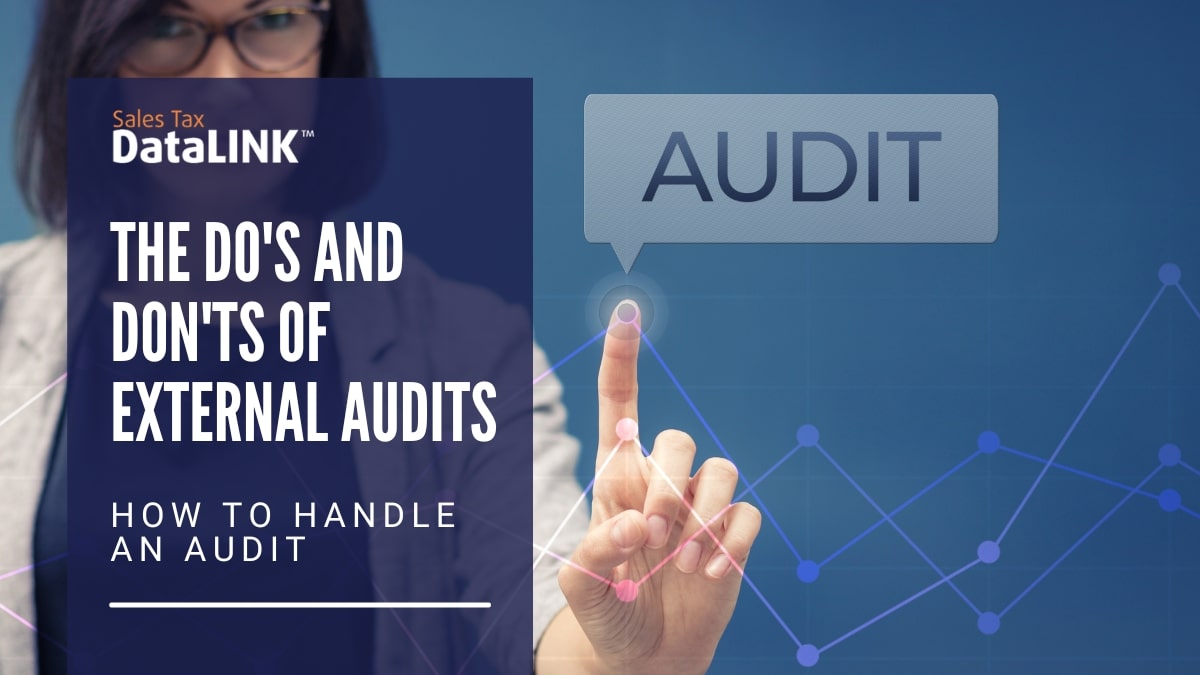External Audit…Uh Oh?
It’s happened. You’ve received a notice for one of the most dreaded occurrences a business can face: an audit. Before you proclaim that the sky is falling and your business is doomed, take a deep breath and find out what you need to be doing to make the process go smoothly with as little collateral damage as possible. In truth, an audit can be a painless event if you follow some very simple suggestions.
How An External Auditor Should Be Handled
Do:
- Be Courteous, Cooperative, and Professional: The auditor is there to do a job, and the easier that job is made the faster it will be over.
- Obtain A Written Notification Of The Audit: The notification letter should outline:
- The audit scope
- The name of the auditor
- Timing of the audit
- Requirements and expectations of the business
- Obtain An Information Request List: This list will outline all of the documentation needed by the auditors.
- Be Proactive: Provide all of the documentation requested on the Information Request List notify the auditor of any request that cannot be met and explain why.
- Assist Auditors With Requests: The longer it takes the auditors to complete their work, the longer they will be at your business.
- Answer Only The Questions Asked By The Auditor: Do not volunteer extra information or answer for someone else. Is it OK to say “I don’t know.”
- Be Positive: Act confident and proud, but don’t get defensive.
Don’t:
- Don’t Be Rude: An angry auditor is not one who may be willing to negotiate possible findings.
- Don’t Spring Any Surprises On The Auditor: Auditors don’t like surprises, if the auditor knows about any possible issues up front, they can deal with them as the audit proceeds instead of simply reacting to them as they arise.
- Don’t Guess: If the question your auditor is asking you doesn’t make sense, ask for clarification.
- Don’t Argue: It is not productive to argue or challenge the investigator when responding to a question or observation. It only motivates curiosity and questions.
- Don’t Lie: Lying is never a good idea. Lying to or misleading an auditor can land you and your organization in serious legal trouble.
Tips To Keep Your Business Audit Ready
Of course, the best audit procedure is avoiding an audit altogether. In order to do that your business should be conducting self-audits to make sure your books are in order and that you are paying sales tax where you need to be.
- Understand Filing Requirements: Review each state’s Department of Revenue site to determine filing specifics and understand your obligations in that state.
- Calculate Accurate Sales Tax Rates: ZIP codes are the wrong tool for this job. Sales Tax software such as RateLink pinpoint exact addresses and rates.
- Confirm Tax-Exempt Transactions. Exemption certificates are often inaccurate. Incorrect addresses, named buyers, or expiration dates can all result in audits.
- Keep Organized, Accessible Records: Detailed records that are easily accessible help companies be audit ready, and are a great way to maximize efficiency.
However, if you don’t have time to be conducting these audits, or you need expert help Sales Tax DataLink can help with our outsourcing service.




